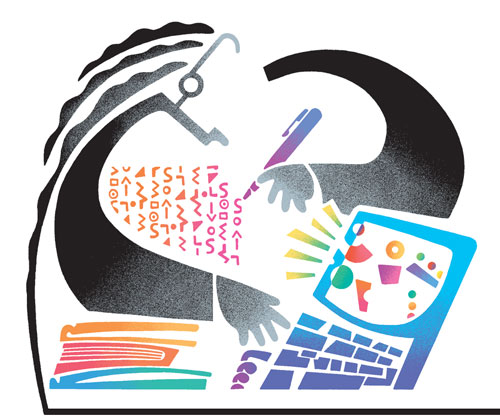Warm-Up for Literary Research
Imagine that you needed to find out about the homework assignment for a class you missed. Where would you go for the information? Would you trust what you overheard from two strangers in the hall? Would you trust what a friend says who also missed the class? Would you trust the word of an A-student that you don't like? How about your teacher's class page (if it is regularly updated)?
Obviously, information is only as good as its source. Every day, you sift through dozens of sources: You remember what you heard from your instructors in different classes, what you saw on SnapChat, what you read on Google News, what you heard at the lunch table. You draw all of those different pieces of information together to make a single, mostly consistent "story" for your day.
A literary research paper does the same thing, drawing information from a variety of sources about one or more pieces of literature. By assembling the information and tracking the sources, you create a consistent story to help your reader understand the literature.
What Is a Literary Research Paper?
Listen to "What Is a Literary Reseach Paper?"
Hide audio

A literary research paper is a response to literature that analyzes one or more literary works by drawing on a variety of sources. An effective research paper uses evidence to create new insights about the literature. It also cites sources so that interested readers can explore the same ideas and make up their own minds.
Every reliable article on the Internet and in the news is a thoroughly researched, correct, accurate, and up-to-date account of some event or topic. We rely on research to sift real news from fake news, fact from fiction. Indeed, our very concept of reality is only as good as the information we choose to accept. That's why research is now more important than ever. This unit will help you create effective research about literature, and you can start by thinking about reliable and unreliable sources.
Thinking About Sources of Information
Some people are trustworthy sources of information, and others are not. You can trust a friend more than an enemy. You can trust a well-informed person more than an ignorant one. You can trust someone who is involved in a situation more than someone who is not involved. Trustworthiness comes in many forms. A chart like the one that follows can help you rate the trustworthiness of a specific person about a specific topic.